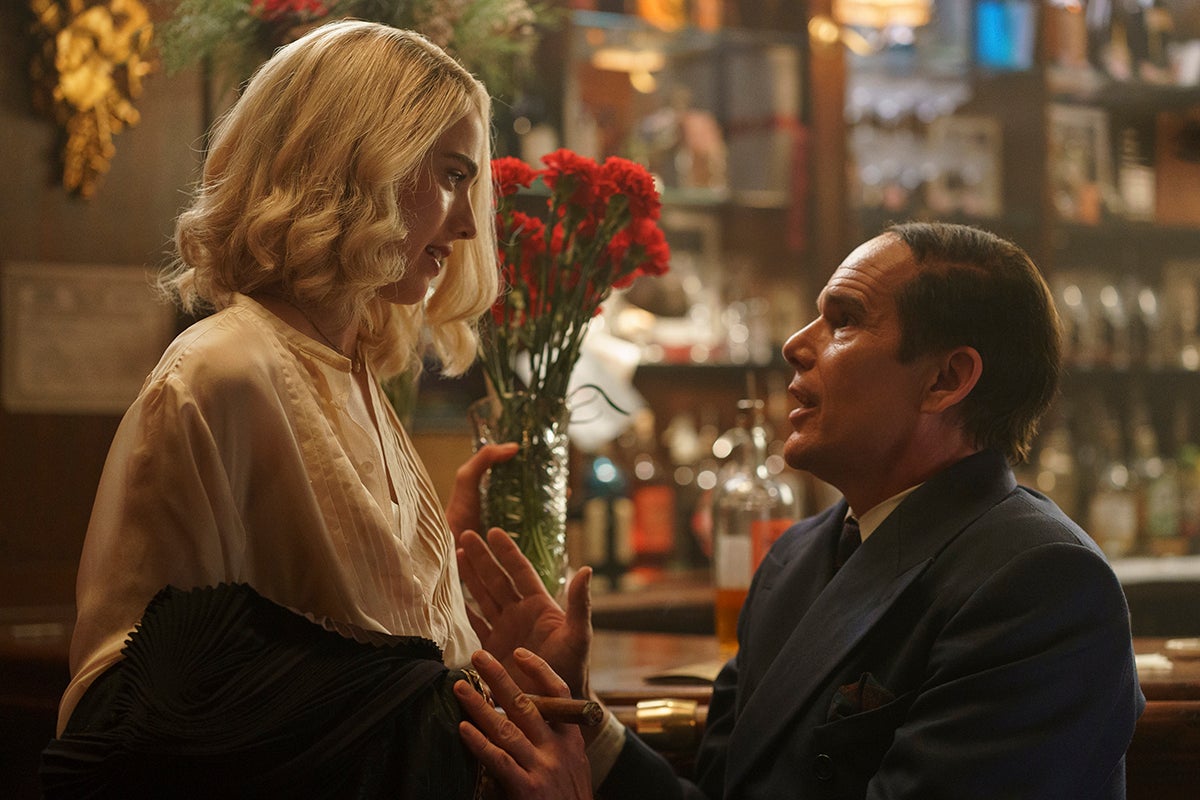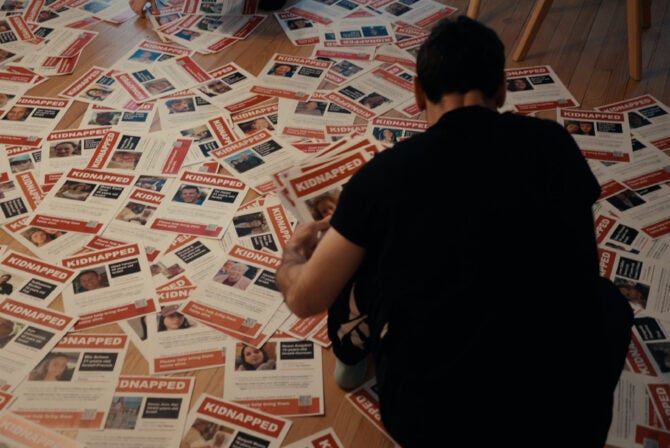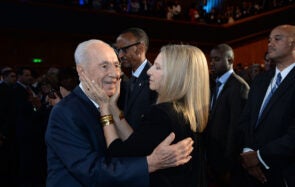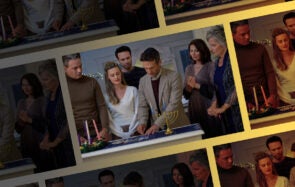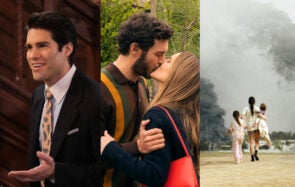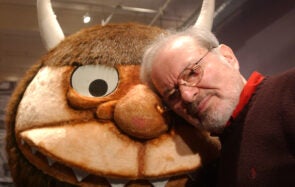On the opening night of “Oklahoma!,” there was one very heartbroken Jewish lyricist in the audience.
A new movie, “Blue Moon,” directed by the great Richard Linklater (“Boyhood,” “Before Sunrise,” “Dazed and Confused”), tells the story of that man, and that night.
I’m not talking about Oscar Hammerstein II, grandson of Jewish German theater impresario Oscar Hammerstein I, who wrote the lyrics for the now iconic musical with Richard Rodgers (whose well-to-do physician father changed the family name to Rodgers from Rogazinsky). I’m talking about Rodgers’ former songwriting partner, Lorenz “Larry” Hart, who is played in “Blue Moon” by Ethan Hawke.
The two showmakers, who came from two very different New York Jewish families, worked together for more than two decades. They collaborated on 26 musicals and many a libretto in their early days, including one for Park Avenue Synagogue titled “Temple Belles.”
They met when Rodgers was just 16, at the Hart family home. Jewish immigrants Max Hart (referred to by Lorenz as “a crook”) and Frida Hart (known to many as “Momma”) welcomed creative men into their abode to talk music, and they encouraged their son to pursue his talent and passion for writing and music.
None of Rodgers and Hart’s musicals have really stood the test of time, but some songs from them have achieved immortality. These include “My Funny Valentine” and “The Lady is a Tramp” from one of their biggest hits, “Babes in Arms,” and of course, “Blue Moon,” after which this movie is titled.
Rodgers and Hart didn’t just come from very different Jewish families (even if they both ended up at Columbia University for a while) — they were also fundamentally, temperamentally different. Rodgers was serious and focused on his craft; he cared about high society and class. Hart loved jazz and the music of Harlem, was charming and warm and also — an irrepressible drunk. It was his drinking that ended his partnership with Rodgers, as they were starting to work on what would later become “Oklahoma!”
Hart was hard to nail down: going off on drunken binges for days at a time, refusing to go to a sanitarium to kick his habit and work on their play, heading to Mexico instead. Rodgers eventually told him that he would replace him with Hammerstein. Hart replied that he saw no one better for the job, and that night when he saw the musical opening, he gave Rodgers and Hammerstein his blessing. A year later, he would be dead, while Rodgers and Hammerstein would continue to create some of the most iconic Broadway musicals of all time.
Hart was diminutive of stature, with a preeminently receding hairline, even in his youth, and while he was a closeted homosexual and had many known affairs with men, he also was charmed by women and did, it seemed, want to marry. Yet because he was short and in no “traditional way” attractive, he always believed himself to be unmarriable and unlovable, even if Frida, with whom he lived until his final day, dreamed of seeing him settled (she was, after all, a Jewish mom).
“He was absolutely adorable, and to know him was to love him. I loved him. But he never believed me. He didn’t believe any woman could fall in love with him,” the popular young opera singer Nanette Guilford once recalled.
“Blue Moon” scriptwriter Robert Kaplow was, in fact, inspired by a correspondence between Hart and a young woman named Elizabeth Weiland which he reportedly got a hold of at an auction, played here by Margaret Qualley. The entire movie takes place on the night of “Oklahoma!”‘s premiere, at Sardi’s, where Hart at first vouches not to drink but eventually succumbs to the bottle, served to him by a bartender named Eddie (Bobby Cannavale).
The “Oklahoma!” team later join him at the restaurant, where Hart talks to his former partner, played by Andrew Scott (of “Fleabag” hot priest fame). Simon Delaney plays Hammerstein. In the trailer, you can see Hart bemoan to Eddie about how after decades of collaboration, Rodgers’ biggest hits is going to be with Hammerstein. He tries to pitch Rodgers a new collab (he’s not game — “I’m not drinking with you, Larry,” he tells him in the trailer). You see him fawn over Elizabeth; to Rodgers, he says: “I’m in love with her.”
It’s clear that Richard Linklater chose to cast Hawke, his frequent collaborator, in this film because he believed from experience he had the chops to pull it off. Yet, the inauthentic approach to casting can feel a little jarring, even in the trailer. Here’s a movie about Broadway songwriters without a single Jewish actor in the main cast. And having Hawke play a short, supposedly ugly Jewish man is a little startling — but also, just as many said of Larry Hart in real life, it feels impossible not to be charmed by him.
This movie looks like a witty and charming ode to an incredible Jewish creator who more people should know of and remember.
“Blue Moon” comes out in theaters on Oct. 17, 2025.
